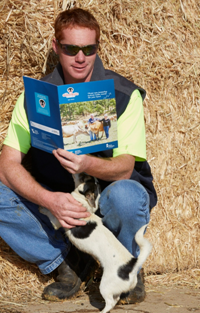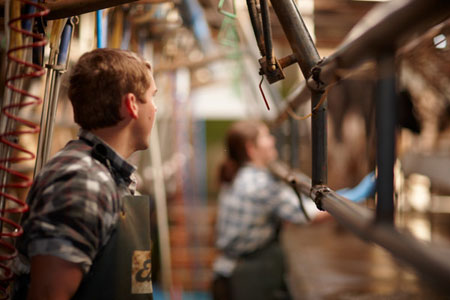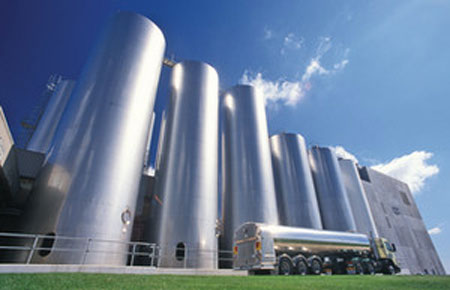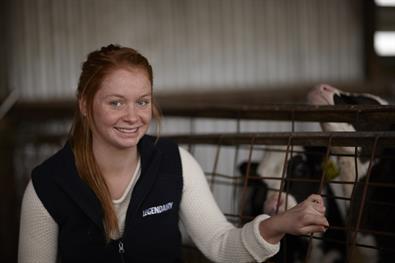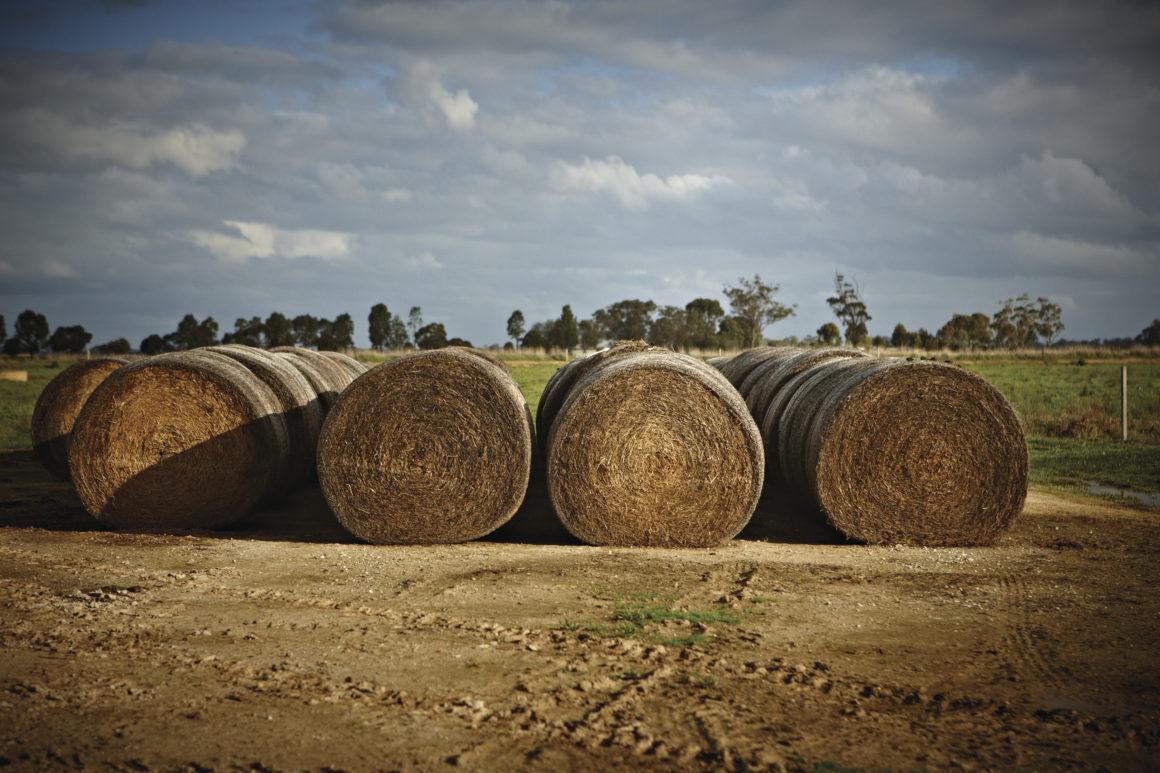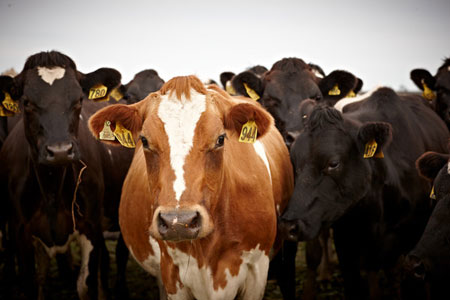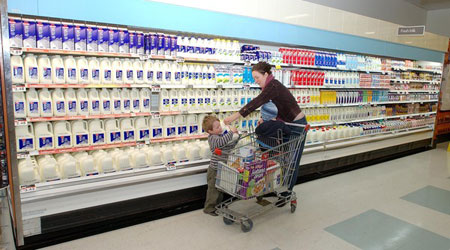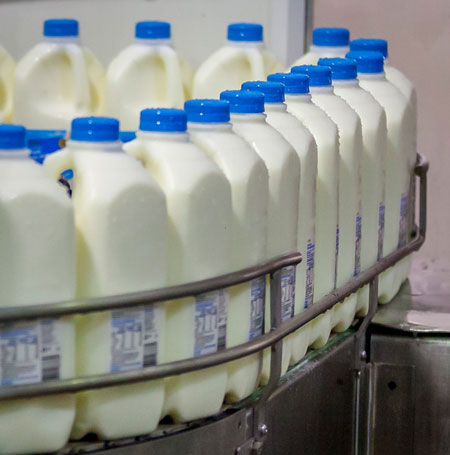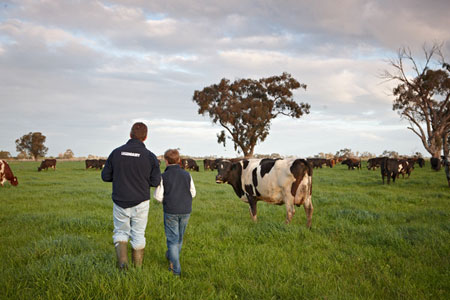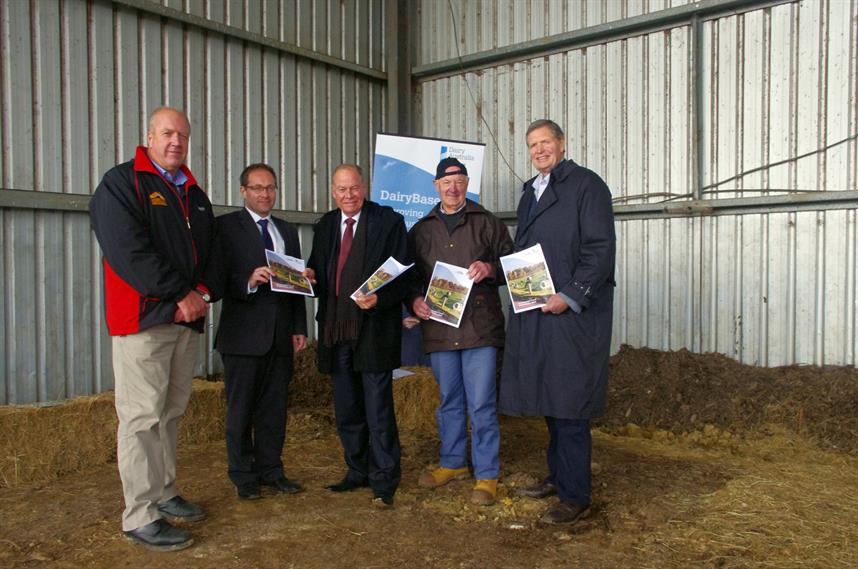Jason and Casey Bermingham’s breeding goal has always been fairly consistent: to breed cows that will have long, productive lives in their herd. However
over the past 10 years their selection priorities have evolved as their herd develops.
The couple dairies near Maffra in East Gippsland, milking 240 cows under a pasture based system. Sixty per cent of the herd calves in spring and the rest
in autumn, averaging nearly 8,000L per cow.
A recent Genetic Progress Report on the herd helped Mr Bermingham refine his breeding priorities.
“Our report confirmed we’d made good genetic progress for production and type traits but it also highlighted the opportunity to improve on health traits
such as fertility and cell count. We had already started paying more attention to fertility but the report really brought the message home,” Mr Bermingham
said.
When the three new breeding indices became available with the April ABV release Mr Bermingham discovered that the Health Weighted Index (HWI) wa
“I know that all the bulls on the HWI list will improve overall production, with extra emphasis on fertility, cell count and feed saved and this matches
what we want to achieve in our herd,” he said.s a good reflection of his breeding priorities.
Mr Bermingham is looking forward to being able to track the impact of his breeding decisions through future Genetic Progress Reports.
“It will be really interesting to see how our herd’s genetic merit for fertility and cell count change over time in response to selecting sires on the
basis of HWI,” he said.
Mr Bermingham has welcomed the introduction of three breeding indices.
“Having three indices obviously gives dairy farmers more choice – to identify sires that more closely match their individual breeding priorities. But it
has also sparked a lot more interest and discussion about breeding priorities. It has really encouraged people to stop and think about what traits
are important for their herd and what direction they want to take their herd through breeding.”
For more information contact Michelle Axford, ADHIS Extension and Education Manager, ph 0427 573 330 email maxford@adhis.com.au or
www.adhis.com.au
, alternatively take a look at the Good Bulls Guide.

